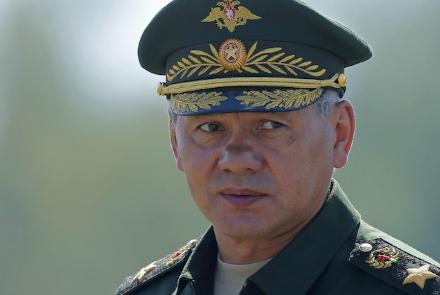At a meeting with his Uzbek counterpart this week, Russia’s defense minister said it was extremely important to train the military to protect the state in case terrorists move from Afghanistan to Central Asian states.
The situation in Afghanistan is not getting more stable, making it possible that terrorist groups will move to the neighboring countries,
Russian defense minister Sergei Shoigu said on Tuesday at a meeting with his Uzbek counterpart Abdusalom Azizov, TASS news agency reported.
According to Shoigu, military cooperation between Russia and Uzbekistan "is totally specific and very important."
"It refers, first and foremost, to the risks and threats coming from areas bordering Uzbekistan," the Russian defense minister noted. "In this regard, one cannot but point to the growing threat of international terrorism that has been moving from Syria to other countries, including Uzbekistan," he said.
"We cannot say that the situation in Afghanistan is getting safer and more stable as groups leaving Syria are particularly moving to Afghanistan. That said, it is highly important to train the military that would be able to protect the state in case the need arises," he added.
This comes a day after Russia’s President Vladimir Putin’s special envoy for Afghanistan, Zamir Kabulov said the US will have to talk directly with the Taliban on the eventual pullout of American troops from Afghanistan or face a grinding and bloody war for years to come.
The US’s refusal to talk with the group is “why we are at a dead-end,” Kabulov, said in an interview in Moscow with Bloomberg last week.
Without such contacts, “the war and bloodshed will drag on for years,” he added.
President Ashraf Ghani in February made a peace offer to the Taliban but the insurgent group has responded by stepping up attacks. The Taliban on Friday offered members of the Afghan military and security forces an amnesty if they quit “enemy ranks.”
US President Donald Trump’s administration, which has accused Russia of arming the Taliban, has poured more troops into Afghanistan and waged a series of air strikes as it seeks to regain the military edge. Russia denies the allegations though it says it’s in dialogue with the group.
Bloomberg reported that Taliban representatives told Kabulov they won’t meet with the National Unity Government, which they consider a “puppet” administration, without first holding negotiations with the Americans, whom they consider as “occupiers.”
A top State Department official in March said talks with the Taliban should not include the US. “We certainly cannot substitute for the Afghan government and the Afghan people,” said Alice Wells, the principal deputy assistant secretary for South and Central Asian affairs.
“We went through this when Soviet troops were there, it was a very similar picture,” said Kabulov, who forecasts increasing Taliban control of the war-torn country. “Another 5,000 or even 50,000 troops won’t help. It’s not going to get any better.”
The US charges that Russia is exaggerating the strength of Daesh in Afghanistan to legitimize the actions of the Taliban and counter the American influence there, according to Bloomberg.
Russia rejected a Taliban request to provide it with money to buy weapons, said Kabulov.

